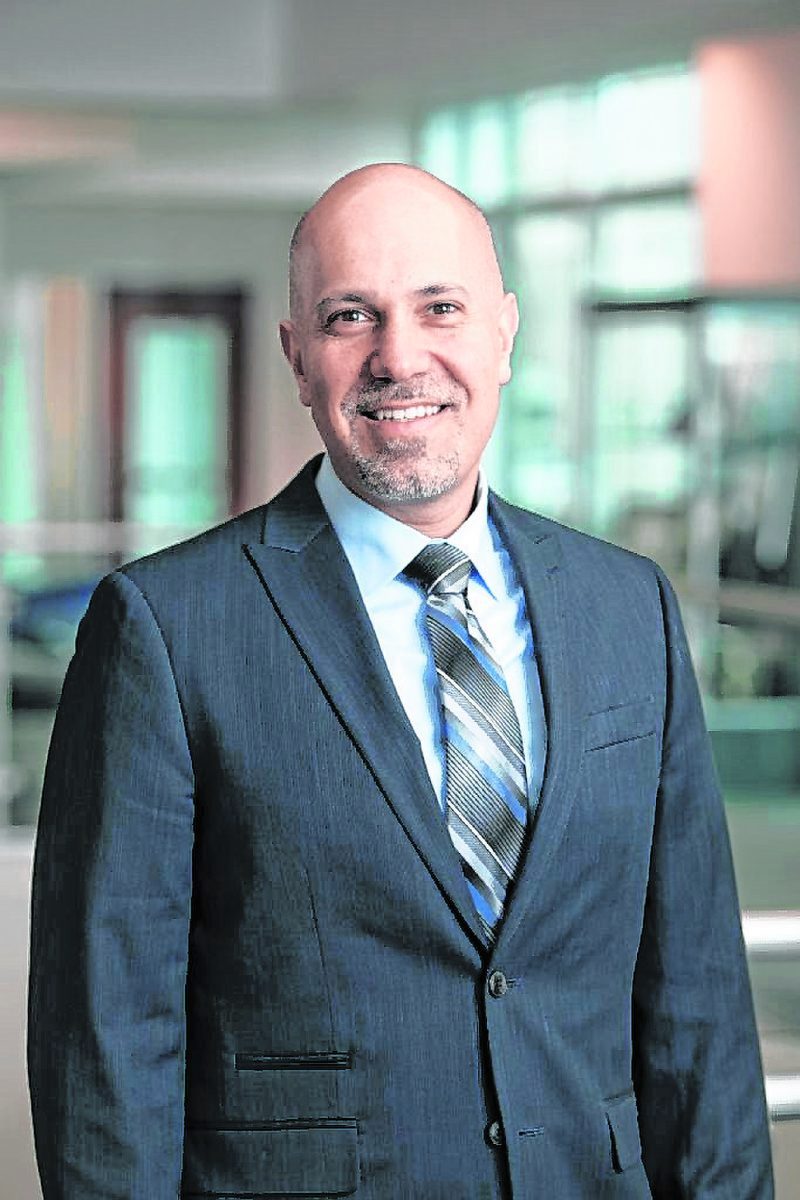Indiana is randomly testing thousands of Hoosiers for COVID-19 and antibodies to better determine the true reach of the virus across the state.
The state teamed up with the Fairbanks School of Public Health at IUPUI in Indianapolis to launch the statewide study this weekend at 18 sites in Indiana, including one at Ivy Tech Community College in Franklin.
The study is a critical step toward uncovering the impact COVID-19 has on the state, said Dr. Nir Menachemi, chair of health policy and management at the Fairbanks School of Public Health. The true count of people infected, including those with mild symptoms, is not widely available in any state.
In Indiana, more than 16,000 COVID-19 cases and 901 deaths have been recorded, and more than 87,000 people tested.
"All the tests that have happened already have been focused on people who have had a lot of symptoms or people who are at a high risk," Menachemi said. "That group has not been representative of the average Hoosier."
This study is also the next step in determining how the state should proceed with lifting its stay-at-home order, Gov. Eric Holcomb said when the study was announced during the state’s daily briefing Thursday.
“We believe this data will better inform our plans to safely re-open our state and to determine what new normal mode of operation really looks like,” said Dr. Kristina Box, state health commissioner, Thursday.
About 5,000 Hoosiers are being tested in the first wave that started Saturday. Participants are chosen randomly via a computer algorithm that picks names out of a list of all Indiana residents. The system is the best way to accurately represent the state population and the "average Hoosier," Menachemi said.
Anyone in the state could be selected, and participants do not have to show any symptoms of the virus to be selected for the study.
"What we’re trying to get to is the people who are showing little symptoms and/or no symptoms at all," Menachemi said.
Using that approach, researchers will learn the proportion of asymptomatic people who are infected and those who have already had the virus.
The results may increase the number of cases recorded in the state, but that is not the purpose of the study, Menachemi said.
"Most importantly, we’ll see how many people might have been previously infected," he said. "That will give us the ability to calculate, for example, what the true death rate is, or what the true hospitalization rate is."
Indiana is one of the first states, along with New York, to implement this systematic approach for studying the virus’s impact, Menachemi said.
The testing sites are solely run by the state, so local health departments in counties where there are testing sites are not involved in the study. Betsy Swearingen, director of the Johnson County Health Department, said this study is important in finding antibodies for the virus.
"We’ll have an idea of how many of us have been exposed and are asymptomatic and/or if we can carry the virus without getting ill," she said. "It will really help in regard to determining the extent of the virus and how we can fight it."
Selected participants were notified by mail, phone and email last week. Those who agree to participate fill out an online form about the study and pick a time, date and location to be tested.
Participants pick the nearest testing site to them, so for example, not every participant at the Franklin location could be from Johnson County but instead from another surrounding county. Other nearby mobile testing sites are in Marion and Bartholomew counties.
At the testing site, participants go inside to receive a nose swab to test for COVID-19 and a blood draw to test for antibodies. Antibodies indicate if someone has been infected and are possibly immune to the virus now, Menachemi said.
The question Menachemi and the state are seeking to answer is how immune is someone after they are infected with COVID-19, he said.
"There are some viruses where you are infected or vaccinated and (then) you have immunity for the rest of your life," he said. "There are others where you have immunity for a couple years, and there are some where you have immunity for a couple months."
The study will be conducted in four waves. The results from the first wave are expected in the next couple days, and another wave will begin May 23, with another in October and another in April 2021. Overall, at least 20,000 Hoosiers will be tested in the study.





